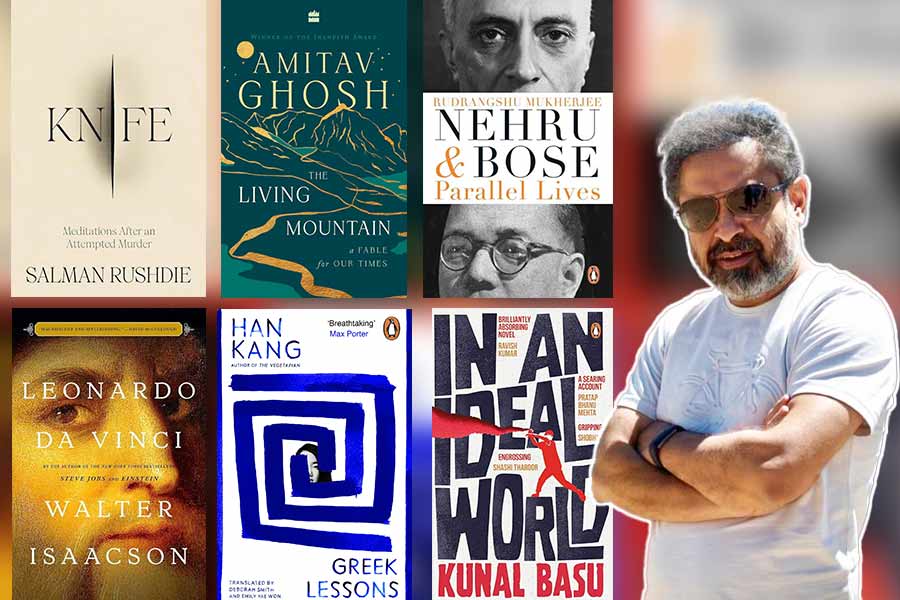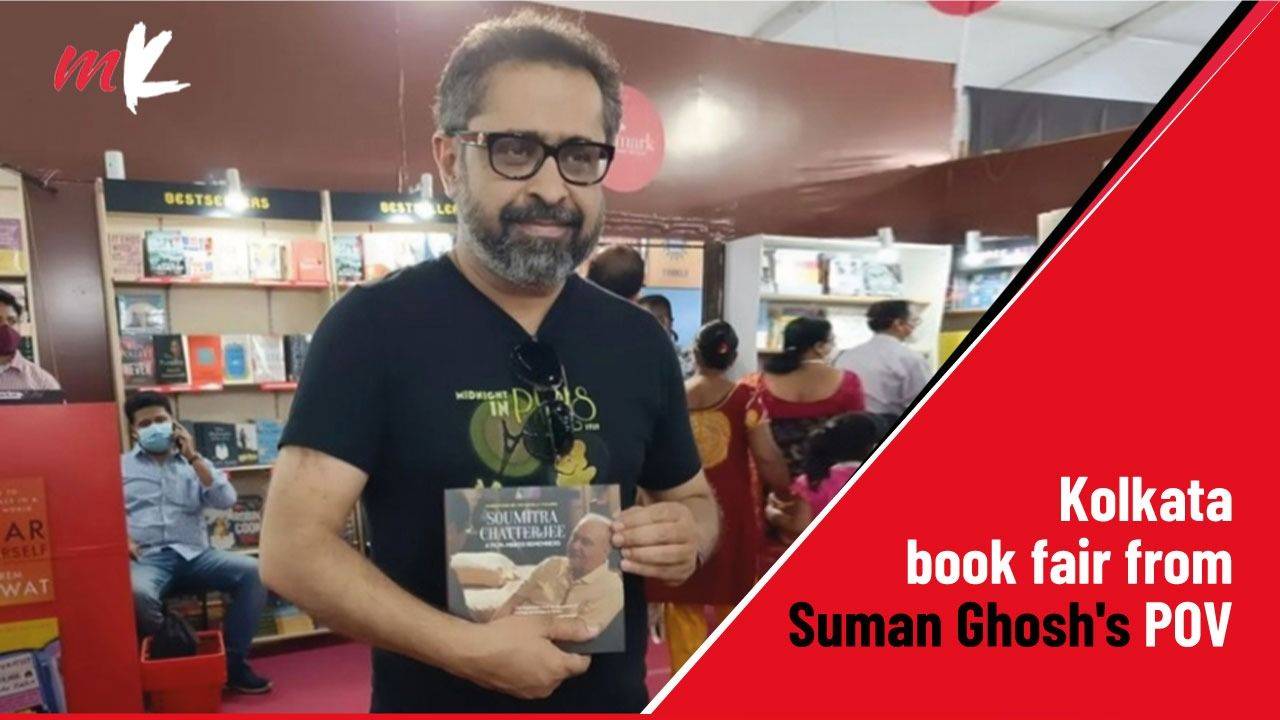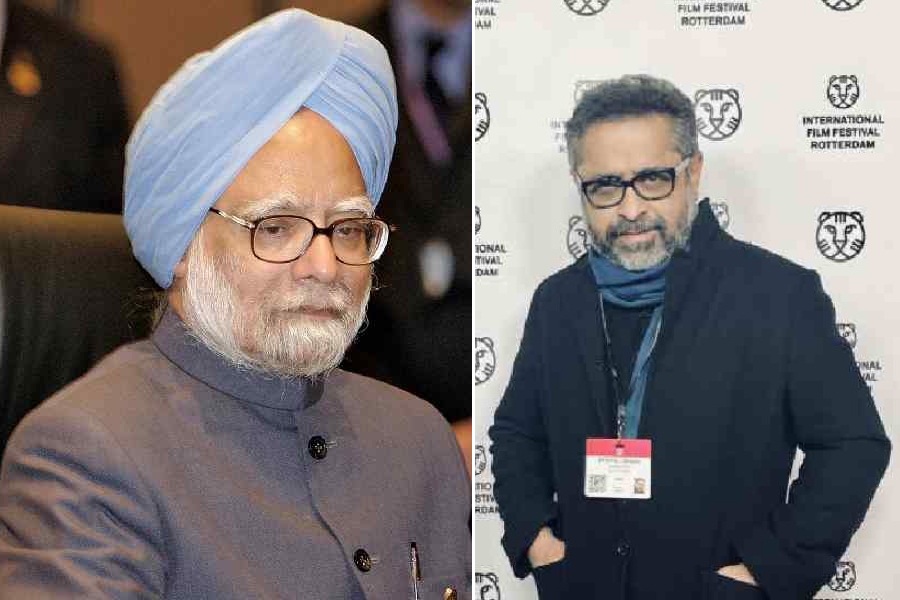We read books for many reasons — pleasure, knowledge, curiosity, escape, comfort, and, quite often, for a deeper understanding of oneself and the world that one inhabits. In light of this, my year of reading has been filled with books that fulfilled all of these needs. As 2024 winds to a close, here’s hoping some of the works (and authors) I have read might resonate with you as well — whether you read them in 2025, or several years on.
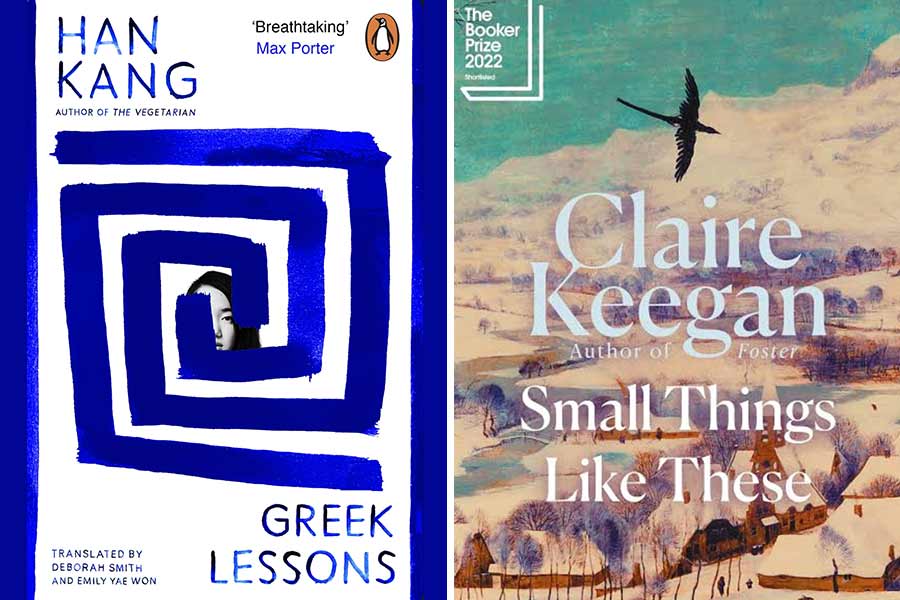
‘Greek Lessons’ (Han Kang); ‘Small Things Like These’ (Claire Keegan)
‘Greek Lessons’ (Han Kang)
As someone in the habit of discovering authors, I was astounded by two writers in particular. The first is Han Kang. When I read The Vegetarian — winner of the 2016 International Booker Prize — about seven or eight years ago, I had, till then, rarely encountered literature of that form or calibre.
It is rare for someone to win the Nobel Prize as young as 54. But each of Kang’s works has broken boundaries. When I read Greek Lessons, I encountered a bona fide ‘sensory novel’.
Greek Lessons is a story of love and friendship between a speech-impaired student of ancient Greek and her teacher who is slowly going blind. Reading this book opened up to me a new path for reflecting on our modes of communication as human beings. That is why it’s so important to highlight the ‘sensory’ aspect of this particular reading experience. Most of us are able to articulate our thoughts and communicate them through speech — but what about the person who cannot? What about the thoughts in their head, the feelings in their heart? How do they communicate with another person? Kang made me think about different aspects of our existence and the human condition in ways that I had never fathomed before.
‘Small Things Like These’ (Claire Keegan)
The other author I discovered in 2024 was Claire Keegan. Over the years, I have had an abiding fascination with the works of Irish authors, from James Joyce to Roddy Doyle and Anne Enright. I once asked an Irishman to recommend the works of contemporary Irish writers, and he asked me to read Keegan’s works.
And so, I read the masterful Small Things Like These, which is centred on the moral and social dilemma faced by the protagonist, a coal and timber merchant in an Irish town. I found myself confronted with quandaries — should we speak out against injustice, or conform to societal norms quietly? As a filmmaker, how much of what I want to say can I safely depict in my films? As an ordinary citizen, what are the consequences one might face for intervening when one witnesses injustice?
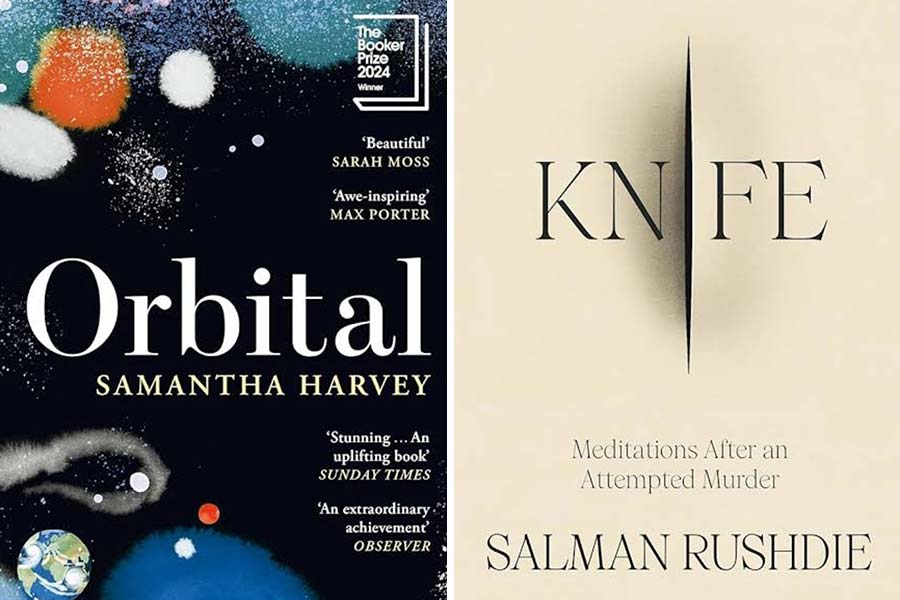
‘Orbital’ (Samantha Harvey); ‘Knife’ (Salman Rushdie)
‘Orbital: A Novel’ (Samantha Harvey)
In contemplating questions of the human condition, we are confronted with the idea of perspective. Several books brought me face to face with perspective this year — among them was Orbital, winner of the 2024 Booker Prize. Orbital outlines the experiences, thoughts and interpersonal relationships of six astronauts in a spacecraft, observing Earth as they orbit around the planet. Harvey’s excellent exploration of the bonds of cosmic reality and the macro-perspective of the human experience evoked a variety of emotions in me. One astronaut receives news of the death of her mother; another ponders having fallen out of love with his wife; all of these life-changing events connect the protagonists to tiny corners on a planet a few thousand miles away.
The magnitude of the perspective that the author provides to her reader — a galaxy in which we all exist, inhabited by our joys and grief, a space within which the Earth is but a speck — is what puts Orbital on the list of the best books I have read in 2024.
‘Knife: Meditations After an Attempted Murder’ (Salman Rushdie)
It is not that I found all parts of Knife — Rushdie’s first work after the attempt on his life in 2022 — particularly great. What stood out to me, however, was the entire notion of a human being surviving an event of such cataclysmic proportions, persevering and then eventually returning to public life to write about it. There is a rich landscape of literary and cinematic references strewn throughout the work. Take, for instance, Rushdie’s description of the night before the attack, where he draws a parallel between a wispy cloud moving across the full moon and a blade slicing an eyeball in Luis Bunuel and Salvador Dalí’s short surrealist film, Un Chien Andalou (An Andalusian Dog, 1929). The following day, Rushdie would go on to permanently lose an eye in the attack.
Most importantly, Knife and its reflections on trauma, anguish and recovery felt very healing to me. It also puts several things into — there’s that word again — perspective. Most of us get so bogged down by the pressures of daily life and its worries that we tend to lose sight of what true suffering can actually look like. In that sense, Knife is not just a healing read — it is also a motivational one.
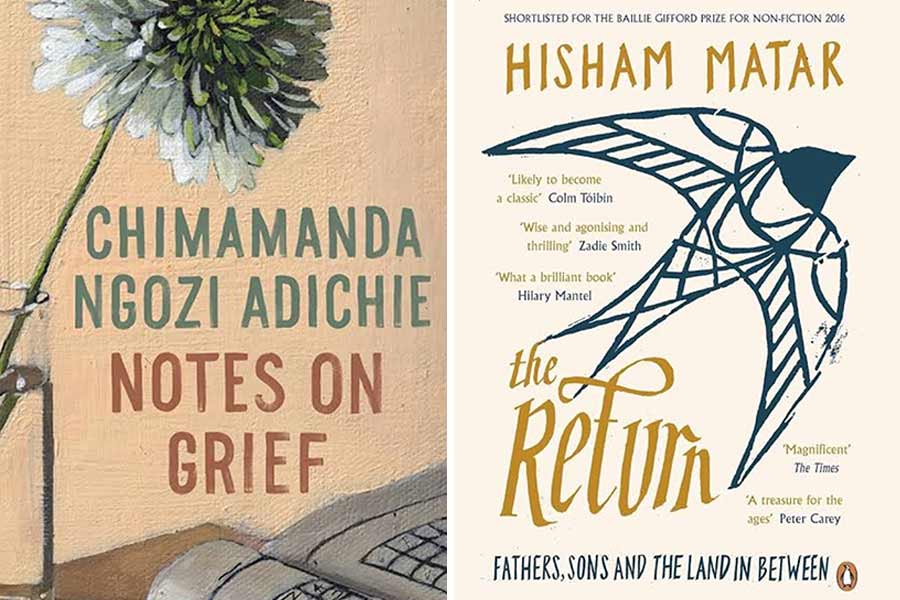
‘Notes on Grief’ (Chimamanda Ngozi Adichie); ‘The Return’ (Hisham Matar)
‘Notes on Grief’ (Chimamanda Ngozi Adichie)
Perspective is also informed by the personal. I read Notes on Grief in the aftermath of losing my father earlier this year. In it, the author reflects on the grief following the passing of her own beloved father. I was already familiar with Adichie’s other work, but Notes on Grief touched a different chord, given the circumstances under which I was reading it. In delving into the nuances of how she writes of loss, pain, remembrance and mourning, I found new ways to understand and grapple with my own grief.
‘The Return: Fathers, Sons and the Land in Between’ (Hisham Matar)
Adichie’s musings on the loss of a primary parental figure bring me to what is possibly one of the best books I have ever read. The author of The Return, who lives in London now, is a Libyan immigrant reflecting on the kidnapping of his father during Muammar Gaddafi’s tyrannical regime in their homeland. Tormented by not knowing whether or not his father died, Matar makes a journey back to Libya to find out what happened. The book is a skilful blend of personal and political narratives, and provides some important insights into the nature of tyranny and autocratic regimes, not just in Libya but all around the world. This is a wonderfully written book; it will make the reader cry.
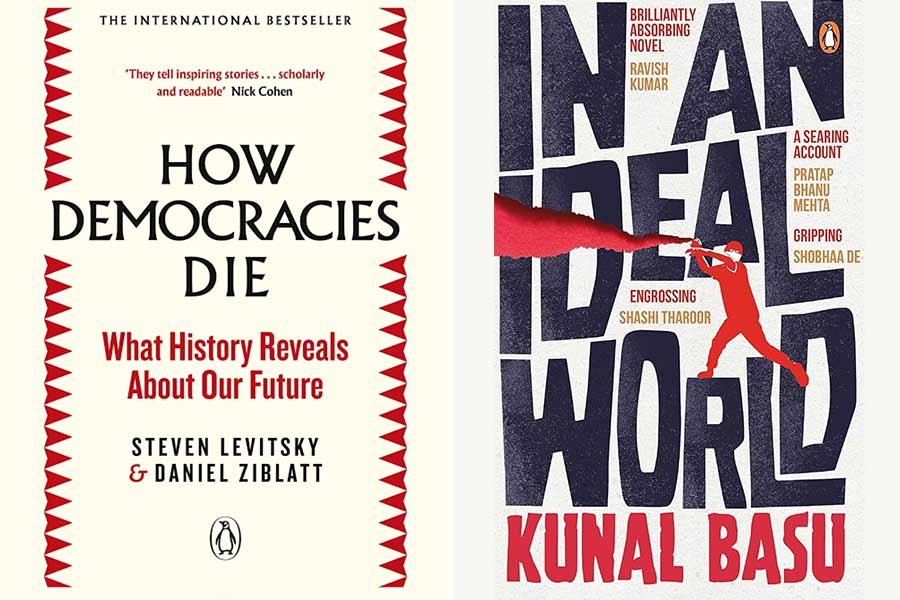
‘How Democracies Die’ (Steven Levitsky and Daniel Ziblatt); ‘In An Ideal World’ (Kunal Basu)
‘How Democracies Die: What History Reveals About Our Future’ (Steven Levitsky and Daniel Ziblatt)
While on the subject of autocratic regimes, I have always wondered: what is the political process that gives rise to these systems of government? What allows them to flourish, and why does a Donald Trump, a Vladimir Putin or a Viktor Orban grow so exponentially in popularity? Political scientists Ziblatt and Levitsky throw light on how the guardrails of democracy are crumbling around the world. In its exploration of what may be going wrong with the democratic setup, thereby giving rise to dictatorships, How Democracies Die is an authoritative work — one that, despite being written by Harvard scholars, is accessible for the layperson.
‘In An Ideal World’ (Kunal Basu)
The son of liberal Bengali parents goes to a private engineering college, becomes a fervent supporter of the right wing, and is implicated in the disappearance of a Muslim student from the college hostel. As a left liberal who believes in dialogue and understanding different points of view, In An Ideal World book made me reflect on an increasingly worrying phenomenon — the inability that many of us face in being able to converse with friends and loved ones who have pivoted towards a more radical political stance.
My only criticism of the book is that it examines this phenomenon primarily from the left-liberal perspective. What might have we discovered about the characters and their motivations if the author had also explored the point of view of the son himself? Having said that, this book paints a picture of what we can expect, more and more, in the years to come.
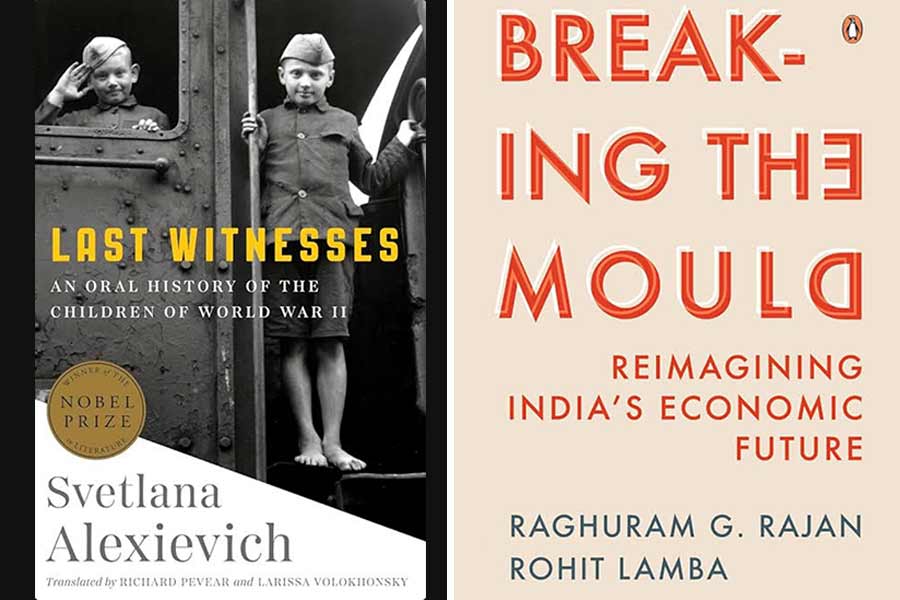
‘Last Witnesses’ (Svetlana Alexievich); ‘Breaking the Mould’ (Raghuram G. Rajan and Rohit Lamba)
‘Last Witnesses: An Oral History of the Children of World War II’ (Svetlana Alexievich)
Given the abundance of literature on World War II that exists in the public domain, Last Witnesses was of particular interest to me owing to its focus on a relatively less-researched aspect of the period — the stories of children who lived through the War. Alexievich, who won the literature Nobel in 2015, highlights stories and voices that often get drowned out in scholarly and popular explorations of the War.
Moreover, as a filmmaker, an academic and a son who lost his 92-year-old father this year, I am acutely aware of the fragility of time and the deep importance of oral accounts as a record of history — especially of the generation with whom an entire era of Indian history will die.
‘Breaking the Mould: Reimagining India's Economic Future’ (Raghuram G. Rajan and Rohit Lamba)
Not only is this work deeply relevant in its focus on the current state of Indian economics, but the way in which former RBI governor Raghuram Rajan distills difficult concepts into accessible formats is remarkable. Rajan and Lamba analyse India’s current economic situation, including the claims made about its progress, and explore what might be done to effect actual, tangible change. This book envisages what the economic landscape of the country would look like going forward.
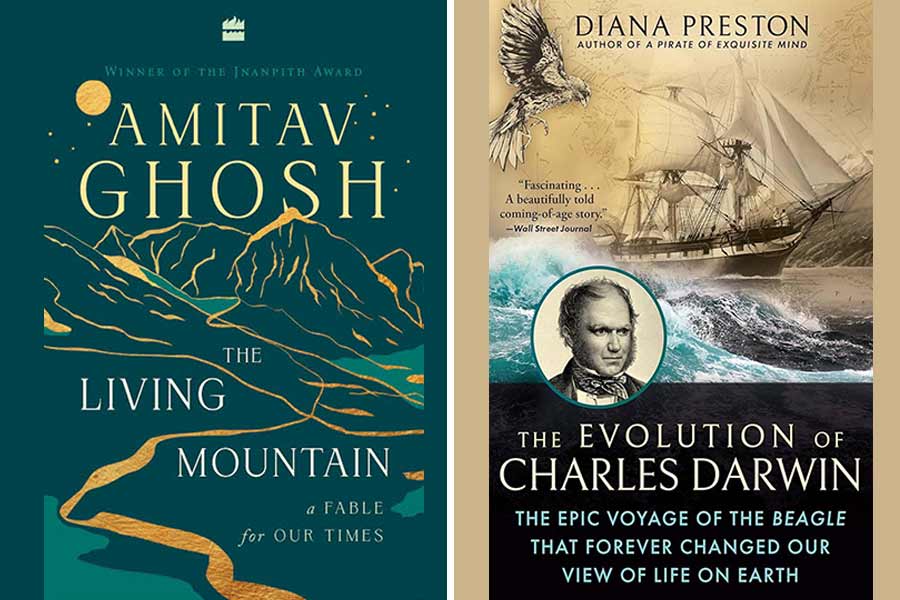
‘The Living Mountain’ (Amitav Ghosh); ‘The Evolution of Charles Darwin’ (Diana Preston)
‘The Living Mountain: A Fable for Our Times’ (Amitav Ghosh)
Along with being a celebrated author, Ghosh can now safely be called a climate activist, especially after The Great Derangement. And while I do believe that activism may result, to a certain extent, in the loss of one’s craft, it is the fable-like narrative and structure of The Living Mountain that struck me. While it does, once again, highlight the implications of climate change, I found it to be deeply enjoyable. We have all been brought up on Ghosh’s oeuvre, and this book, which is less than the length of a novella, is a departure from his usual style.
‘The Evolution of Charles Darwin: The Epic Voyage of the Beagle That Forever Changed Our View of Life on Earth’ (Diana Preston)
Diana Preston’s book stands out in the vast sea of material on the architect of the theory of evolution through natural selection. She provides a unique and deeply detailed perspective on Darwin, from his college life and his problems with his father right up till his journey on HMS Beagle to the Galapagos Islands. This book, in essence, is the story of his scientific quest — as such, it is neither a mere biography, nor just a narrow study of his scientific identity.
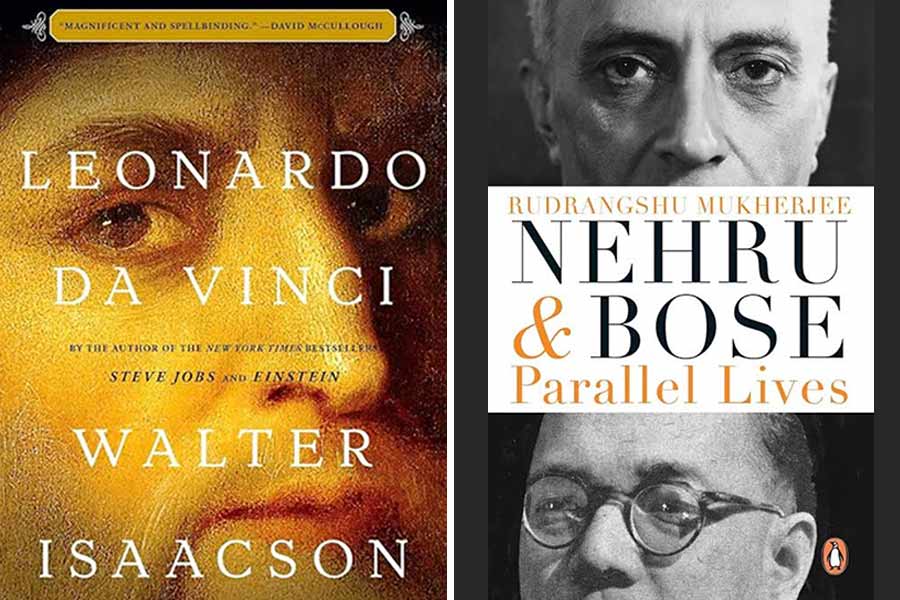
‘Leonardo da Vinci’ (Walter Isaacson); ‘Nehru & Bose’ (Rudrangshu Mukherjee)
‘Leonardo da Vinci’ (Walter Isaacson)
Most of the world knows him as the painter who created the Mona Lisa, but his groundbreaking contributions to the fields of anatomy, astronomy, architecture, geology and mathematics, among others, would boggle the human mind. In my opinion, Leonardo da Vinci is arguably the greatest polymath that the world has ever seen. In him, one can see a distinguishing quality found in many greats across fields: the abiding curiosity to dig deeply into every subject to inform one’s understanding of another subject even better. (In my field, one such person is Amartya Sen.)
Walter Isaacson’s book gives the reader a unique understanding of da Vinci as a polymath. In casual conversations, we might wax eloquent about his best-known contributions to art — but what about his artistic and intellectual process, which enabled him to breach the boundaries of science and art so that he could contribute almost equally to all fields? Isaacson gives you that perspective.
‘Nehru & Bose: Parallel Lives’ (Rudrangshu Mukherjee)
I am a fan of Rudrangshu Mukherjee’s scholarship. In the larger discourse around the founding figures of India’s freedom movement and Independence, there are several misconceptions about Jawaharlal Nehru and Subhas Chandra Bose: they are largely posited as antagonists.
Mukherjee’s work on the two statesmen gives the reader a view into the strong connection they actually shared. It is true that they were political rivals, and there is no question about MK Gandhi’s machinations as far as Bose was concerned, but this book’s importance lies in dispelling the simplistic understanding of Bose and Nehru’s relationship. I recall one particularly wonderful exchange between the two in the aftermath of the death of Nehru’s wife. One should read this book to gain a well-rounded picture of the lives of both these seminal men and their evolving bond with each other.
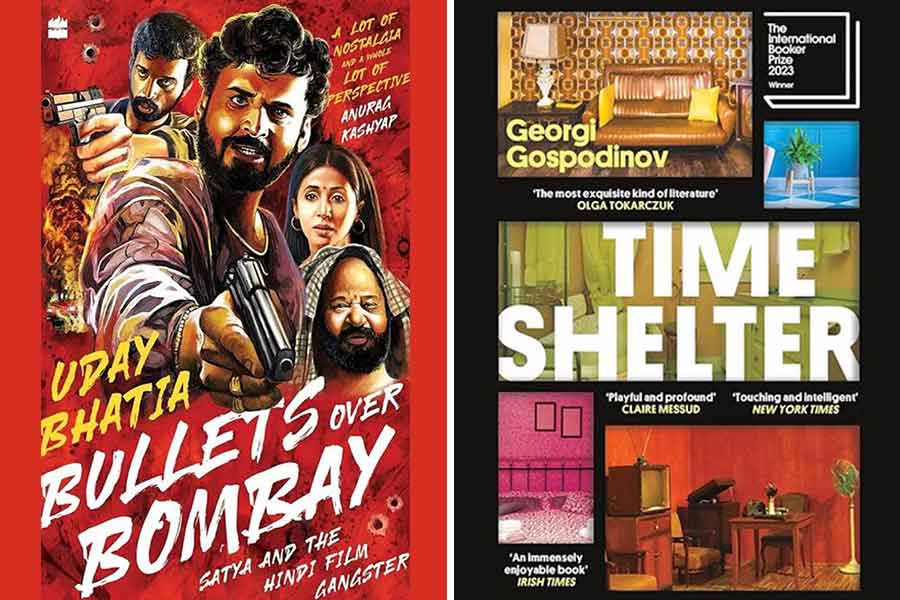
‘Bullets Over Bombay’ (Uday Bhatia); ‘Time Shelter’ (Georgi Gospodinov)
‘Bullets Over Bombay’ (Uday Bhatia)
From the perspective of a filmmaker as well as a viewer, there are few films I have watched that can match the calibre of Satya (1998). This seminal Hindi film changed the landscape for filmmaking in India. In the years to come, I would go on to work with Saurabh Shukla, who wrote Satya along with Anurag Kashyap.
Uday Bhatia’s book provides a detailed account about the making of Satya, and is easily one of the best books on Indian cinema to have been written in recent times.
‘Time Shelter’ (Georgi Gospodinov)
This brings me to my favourite book of the year. When my forthcoming film, Puratawn, was going on the floors, my wife told me about Time Shelter (winner of the 2023 International Booker Prize). “You should read this book,” she said. “You will find many similarities with the film you are making now.”
In Time Shelter, one finds a village where a “clinic for the past” is created for the benefit of Alzheimer’s patients, where the minutest details of a particular decade — say, the 1960s — are recreated for their comfort and safety. Before long, people without the debilitating condition apply to be a part of the village, fed up as they are of the exhausting state of the real world. This scenario paves the way for the author to create enthralling linkages between the past, present and future.
In Puratawn, Sharmila Tagore essays the role of an Alzheimer’s patient. And while the two works are not the same, really, the resonances I felt with Gospodinov’s literary world continue to stay with me. Time Shelter is easily the best book I have read in 2024.
That is my reading list for 2024. Happy new year, and, of course, happy reading!
(As told to Nayantara Mazumder)
